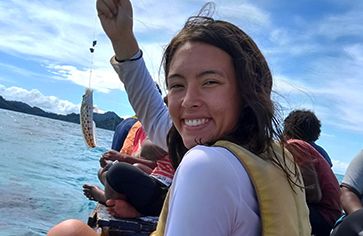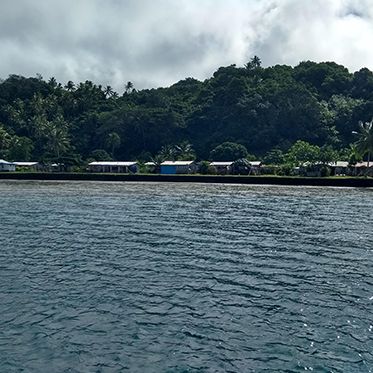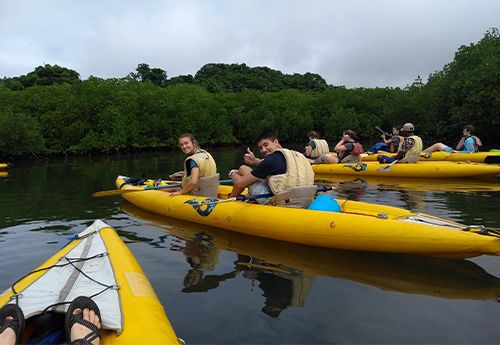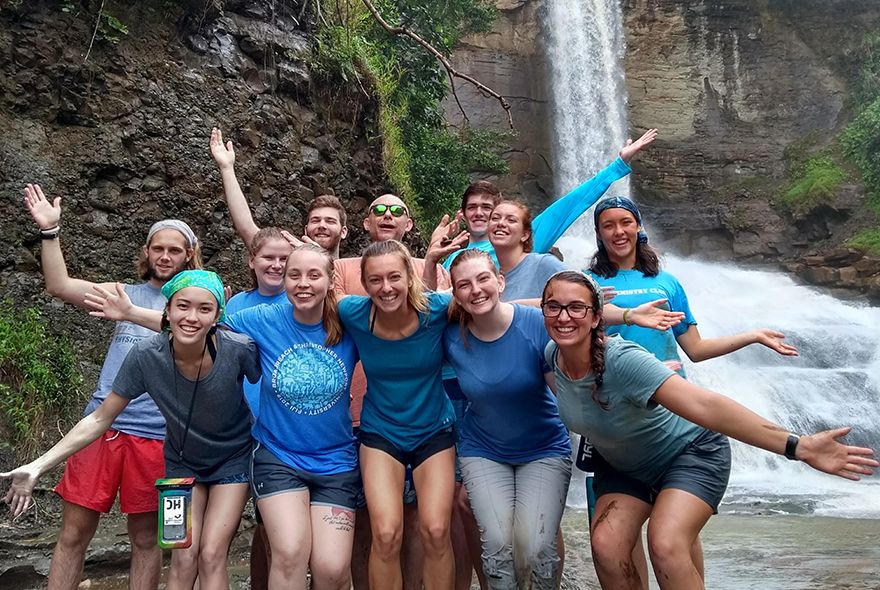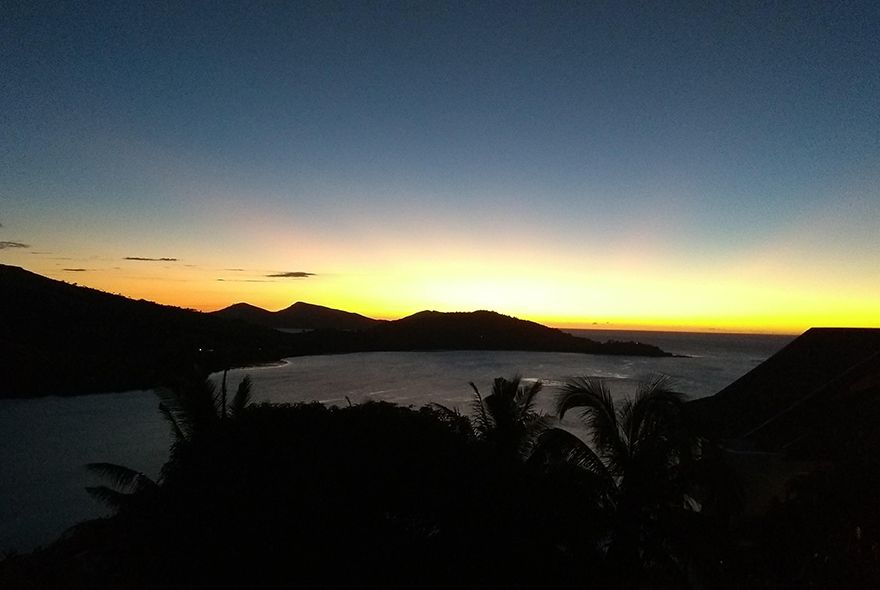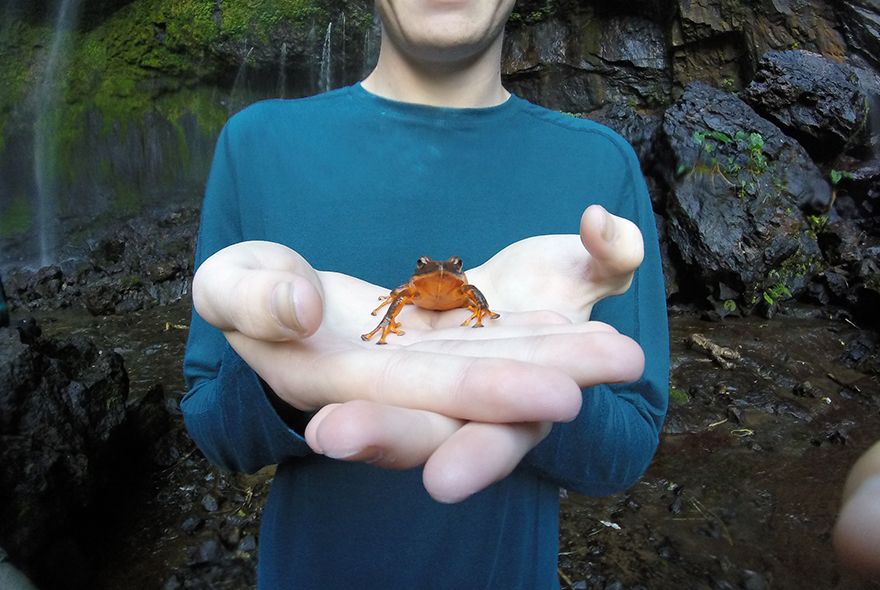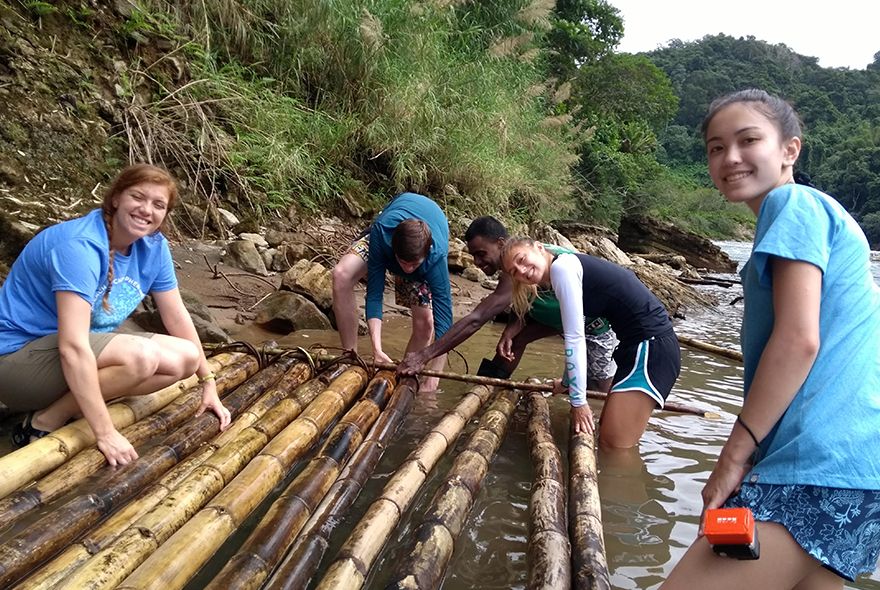Itinerary
Days 1-9: Highland ecosystems
We fly across the United States and then halfway around the world. It’s a big adventure, but worth it! We cross the International Date Line and arrive two days later on the beautiful, hot and humid island of Viti Levu, Fiji. After collecting our bags we hop on a private bus and transfer to a small city of Pacific Harbour on the southern coast. We check into our small hotel and ease into Fijian life with our program orientations. Adjusting to the new environment and the time change isn’t immediate, so we take things slow and prepare for our next few days of adventure.
From the coast we travel by private bus into the highlands. We leave our main bags with our driver and travel off-the-beaten path on a hike into the Upper Navua Conservation Area. Along the way our guides teach us about the surrounding flora and fauna. Our destination is a small village where we sleep in tents for the night and listen to the sounds of the river rushing by. In the morning, we wake up, learn how we are going to navigate our raft and work together as a team to paddle the rapids of the Upper Navua River. It is a stunning journey through the green walls of the canyon! At the end of the day we arrive at a brightly colored village with small cabins. Over the next three days we learn from the locals and participate in hands-on activities like planting projects, designing animal traps or raft building to better understand and observe the unique environment of the highlands. Finally, we must say goodbye to our hosts and load into inflatable kayaks to continue downstream, and return to Pacific Harbor.
Daily themes: Orientations; Intro to Fiji; Forest Ecology; Fijian Culture; River Ecosystems; Resource use
Days 10-13: Island exploration
We leave Viti Levu and travel by boat to the island of Beqa. The village welcomes us with a traditional kava ceremony and we are introduced to the island community. Living on the island gives us the opportunity to engage with locals, witness their interaction with the environment and compare similarities and differences from our previous village stay. Our small cabins are the perfect home base for getting to know the people of Beqa and our surroundings. Fiji is world-renowned for its beautiful reefs and Beqa’s reefs are no exception. We grab our snorkels and explore the crystal-clear water teeming with marine life. We also examine how mangrove ecosystems contribute to the health of the entire island. Time is transformed on the island and four days goes by in a flash.
Daily themes: Watershed ecology; Highlands vs. islands; Reef ecology; Coastal Ecosystems
Days 14-19: Rainforests and beaches
Back on Viti Levu we transfer to the capital city of Suva. We stay near the Colo-I-Suva rainforest, a perfect backdrop for conversations about ecotourism and conservation. Now that we are near the largest population center of Fiji we can better understand how the majority of people interact with the land. What are urban ecosystems and what are some of the impacts that humans have on the environment? We visit the Natural History Museum, explore the fruit and vegetable markets of Suva, explore the nearby rainforest and work with university researchers on a project. As the program comes to a close, we travel to the beach and reflect on all we have learned and experienced during our adventures across Fiji. Enjoy a final morning on the beach before packing up and transferring to Nadi for an evening flight home.
Daily themes: Eco-tourism; Conservation projects; Human impacts; Reflection & Transference; Course Closing
This itinerary is flexible and subject to change based on weather, group, availability of activities or other conditions. A more detailed daily itinerary will be provided upon enrollment.
